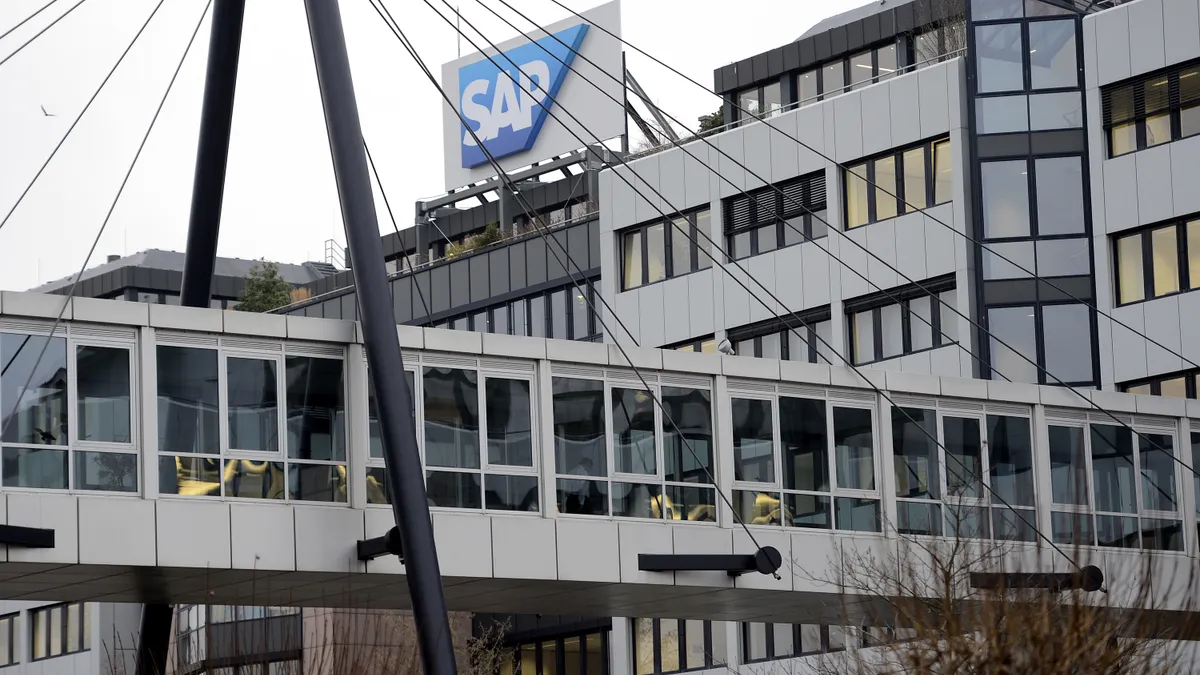Dive Brief:
- SAP customers accelerated ERP migrations, lured by the software giant’s expanding suite of embedded AI solutions, CEO Christian Klein said Monday, during a Q1 2024 earnings call.
- “Customers, who probably planned their migration start date for the end of this year or next year, now want to move faster,” Klein said, pointing to asset management, workflow automation and supply chain analytics solutions.
- The SAP Business AI platform, introduced last year, is part of a growing portfolio of functionally specific solutions the company has integrated throughout its cloud-based ERP. “Since Q4, we have released over 30 new AI scenarios across our cloud portfolio,” Klein said. “Additional ones come out almost every week with more than 100 in the pipeline for the remainder of the year.”
Dive Insight:
SAP is pulling on multiple levers to drive business to its cloud solutions in an ongoing push to replace on-prem and hosted ERP with SaaS-based delivery.
As the SaaS shift intensified, the company ramped up technical support and enhanced incentives programs in January, offering current customers credits designed to reduce migration costs by up to 50%. SAP has also pledged to keep on-prem ERP updates rolling through 2027, though it’s not clear cloud adoption is progressing fast enough to meet that deadline.
SAP Business Warehouse, a data management and analytics solution, is a particularly heavy lift, Klein noted Monday.
“A BW system is not so easily replaced,” Klein said, acknowledging that not all enterprise BW systems will be fully in cloud by 2027.
AI has become central to SAP’s SaaS strategy.
“I have no C-level conversation anymore without talking about Business AI and the impact on the business,” Klein said.
To help spread adoption of the technology, SAP announced an AI-centered $2.18 billion restructuring plan and created a board-level cloud migration unit in January. The company aims to rapidly deploy the Joule copilot generative AI assistant throughout its business solutions, according to Klein.
“Joule will cover the most used transactions of our end users by the end of the year,” Klein said. “No matter if you do work on travel, on finance, on supply chain, on procurement, it will all happen via human language. And that is included in our premium AI offering, which is consumption-based.”
The company unveiled an AI-driven supply chain solution for manufacturing in a Monday announcement. Last month, the company rolled out a no-code/low-code payments integration for its Commerce Cloud solution.
SAP hopes the incremental releases will help quicken the pace of cloud adoption as AI solutions spread throughout its ERP ecosystem.
“The Cloud ERP Suite contains all the modules for our company's core processes from finance, spend management, and HR to supply chain, commerce and our business technology platform, including data and analytics,” Klein said. “Together, these modules have the same functional scope as our monolithic on-premise ERP.”














